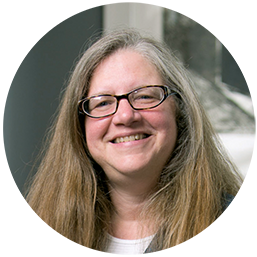Well yes, but that probably seems obvious. As with everything in higher education, the research on best practices always needs more data to be generalizable. The recently published Learning Analytics Special Edition of the Online Learning Journal (OLJ) contains nine articles which provide a range of information including a review of the literature and an examination of frameworks for use of analytics, as well as articles presenting the results of analytical studies including a large scale analysis on the effectiveness of learning modalities from the PAR Framework (now a division of Hobsons), and case studies from multiple authors. The research will significantly inform practical decision making for administrators, faculty teaching online courses, and other researchers. BUT, while all of these articles should be read, the review of data from PAR Framework, led by Dr. Karen Swan (an expert and leader in this community), helps put to rest negative research on retention in online learning. Reading this article moves forward the discussion on what expertise may be needed to improve student success in online learning.
Recent IPEDs data show a continuing growth in use of online courses and degrees. Of the 5. 8 million students taking at least one course online, about half choose to pursue full degrees online and the other half to blend online courses into their academic pursuits. The PAR data distinguishes among students taking only on ground courses, students taking only online courses and students taking some courses on ground and some courses online. Time and time again, researchers compare the population taking any courses online with the larger student population and often the other IPEDs data which tracks full-time freshmen enrollment and completion. We are starting to see enough evidence that the two populations are different demographically. More non-traditional students choose online learning as do a greater percentage of graduate students. The demographics matter as do the institutions.
Authors James, Swan and Datson (2016) reviewed a large dataset from PAR institutions including five primarily on ground community colleges, five primarily on ground four-year universities, and four primarily online institutions. The PAR sample is more representative of institutions serving nontraditional students than most other studies. The results suggest that taking online courses is not necessarily harmful to community college students’ chances of being retained; in particular, there was no difference in retention between students taking only on ground courses and students taking some courses online and some courses on ground. Their research also reveals essentially no difference in retention between delivery modes for students enrolled in primarily on ground four-year universities participating in the PAR Framework. At participating primarily online institutions, students blending their courses had slightly better odds of being retained than students taking exclusively on ground or exclusively online courses. This report should be added to other seminal research that provides a clearer picture of student retention in online and blended learning.
Why does this research help the field? It points to the fact that institutional expertise in the modality matters for student retention. Institutions who serve non-traditional adults must begin to get better at strategically aligning their practices to support students in multiple delivery modes. There are a host of communities (OLC and PAR to name two) and businesses that can support better institutional practices, or we can do it ourselves but let’s agree to do it better….
About the Author
Karen Vignare, Ph.D., currently works with several clients (higher education and educational technology) to provide insight on how to measure impact, improve efficiency, and improve student success in higher education. For the past three years, she served as a Vice-Provost, at University of Maryland University College, the largest online public open access institution leading mission focused innovations in adaptive learning, student success and analytics. The work included leading the search for new technologies and working collaboratively with other units to launch projects. She also worked as a Director at MSUglobal at Michigan State University. MSUglobal was responsible for helping departments at MSU integrate emerging technologies including extension work, non-credit programs and research projects at MSU. She publishes regularly on various topics in online learning. She has a Ph.D. from Nova Southeastern University and a M.B.A from the University of Rochester’s William Simon School of Business.


